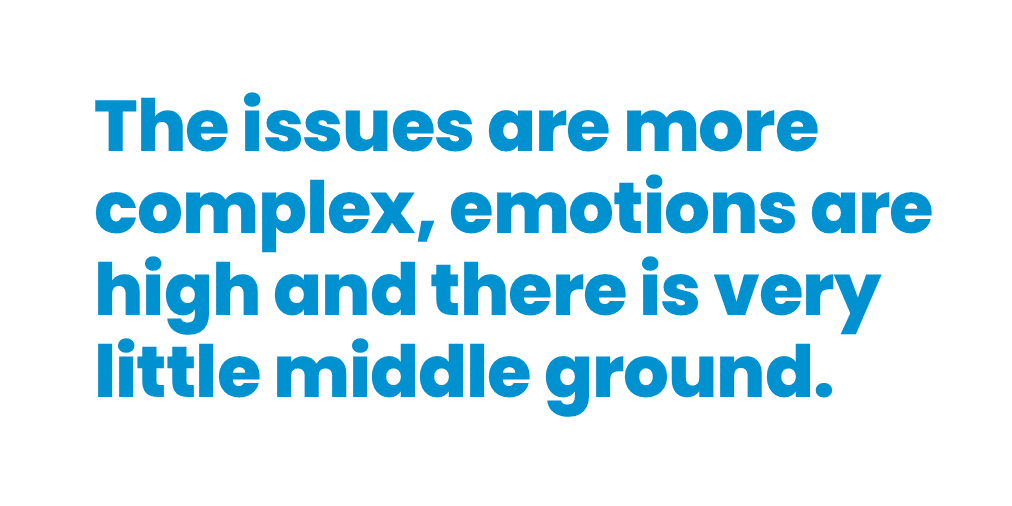
Making a statement at a time of global conflict: Many asset managers say ‘No, thanks’
To date, few asset managers have commented on the war in Gaza.
Russell Investments was the rare firm that jumped out with a rapid response blog post on October 9. They made a supportive statement about the tragedy in the Middle East, not discussing the conflict in detail but focusing solely on potential market risks. As shown in the screenshot below, it was shared to LinkedIn, not to the Russell Twitter account (which hasn’t been updated since the summer). A few days later, the news led Russell’s Market Week in Review.

Few others followed Russell’s lead, based on our regular monitoring. This is in contrast to the start of the Ukraine conflict when numerous money managers offered commentary about the financial impacts on energy and food exports. See How mutual fund, ETF communicators sprang into action when SVB surprised about the Silicon Valley Bank crisis.
Over the last few years, it has become almost expected for major companies to wade in on crises or societal issues to demonstrate support on topics of importance to their customers and employees. For financial services firms, there is always the potential for a crisis to impact the markets and many choose to publish content as a way to arm the distribution team with insights on how the investment team is sizing up any new or elevated risks. Those who do are often perceived as leaders and can be tapped by reporters looking for insights.
One of our favorite PR podcasts, For Immediate Release (FIR), shares why the decision to comment on the Israeli Hamas conflict is particularly fraught. The issues are more complex, emotions are high and there is very little middle ground. The podcast highlights how various mostly non-financial organizations faced intense criticism after they commented and failed to carefully think through the implications. Many quickly declared their support for Israel and expressed concern about antisemitic attacks. Others later expressed concerns about the humanitarian crisis in Gaza and the rise of Islamophobia.
Some firms that avoid public comments may get pushback from employees, resulting in a need to prioritize internal communication. Large companies with employees around the globe often need to acknowledge the impacts on their own workers. The most effective firms acknowledge the experience of those on all sides.
A recent survey from Gallup and Bentley University found only 41% of Americans believe companies should weigh in on conflicts (down from 45% last year), and only 38% think companies should weigh in on conflicts abroad.
For many, it feels like there is no right answer. You can’t comment without enraging a lot of people. And silence may not be viable; if you don’t say something, your employees or others may construe your lack of comment as a statement.
A few best practices for those choosing to comment on this or other conflicts:
- Before deciding to take a position or publish a comment, create some ground rules for your organization: How does this align with our values and our business? Do we have stakeholders that are affected—employees, clients? Shel Holtz, one of the FIR podcast co-hosts, also suggests considering how this could go wrong. Consider as many factors as possible before deciding to weigh in.
- If you take a position, be sure to acknowledge the experience of those on the other side.
- Statements should focus on your audience and be sympathetic to those impacted by the crisis.
- If you aren’t going to make a statement, at least tell your employees why.
Lowe Group offers a range of media relations services. To learn more, send us a note and we’ll follow up with you.
Subscribe.
Receive the latest news and insights from Lowe Group.